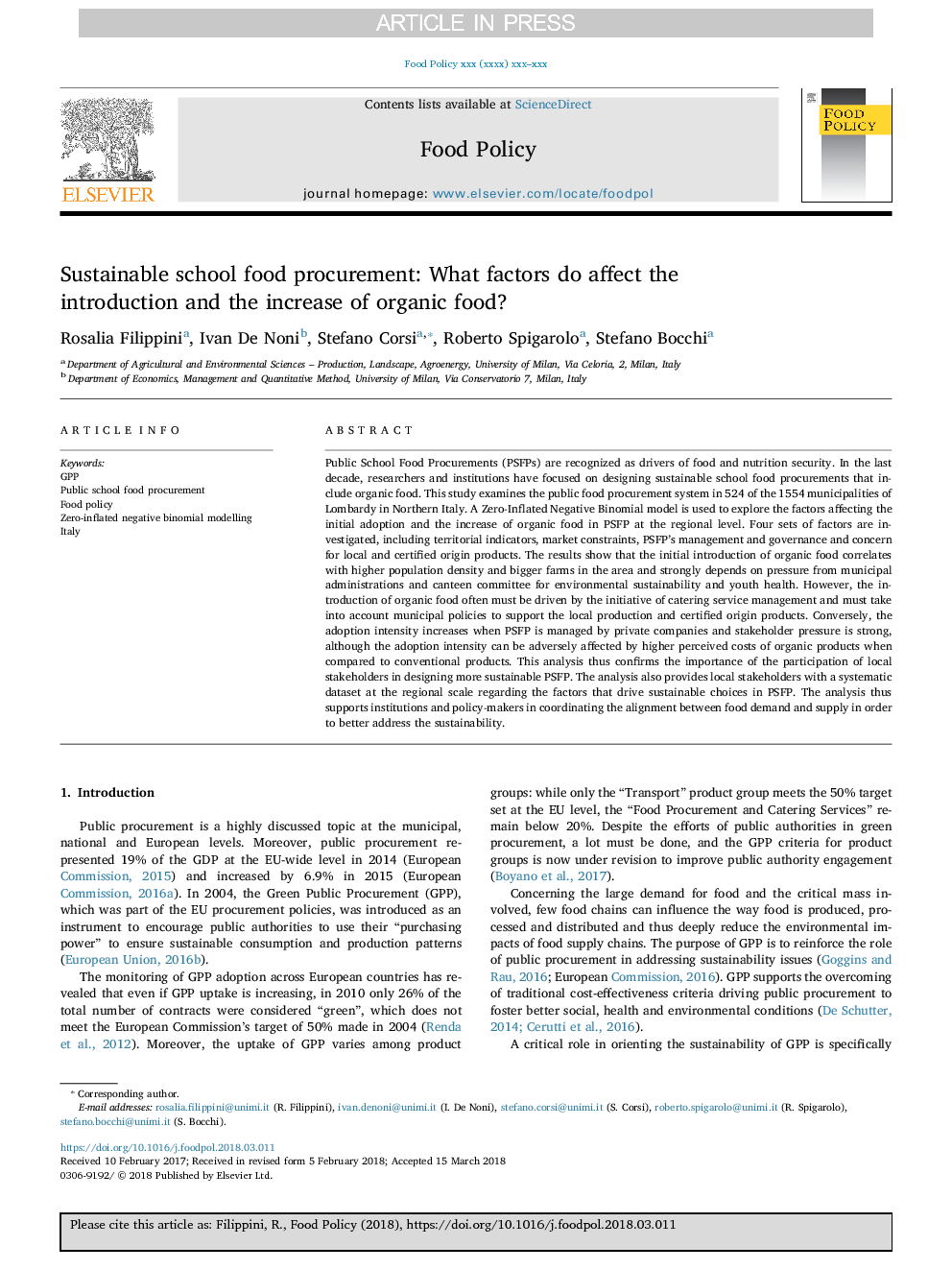ترجمه فارسی عنوان مقاله
تدارک غذا مدرسه پایدار: چه عواملی بر معرفی و افزایش مواد غذایی ارگانیک تاثیر می گذارد؟
عنوان انگلیسی
Sustainable school food procurement: What factors do affect the introduction and the increase of organic food?
| کد مقاله | سال انتشار | تعداد صفحات مقاله انگلیسی |
|---|---|---|
| 94704 | 2018 | 11 صفحه PDF |
منبع

Publisher : Elsevier - Science Direct (الزویر - ساینس دایرکت)
Journal : Food Policy, Volume 76, April 2018, Pages 109-119

